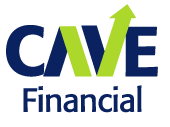Stuck in the credit card trap and want to get out?
Tue Feb. 7th 2017
Just about everyone has a credit card these days, and because of a sneaky trick credit card companies use, a lot of us are paying a stiff interest on our balances every month. This sneaky trick has got an even sneakier name.
How to get out of the credit card trap
Just about everyone has a credit card these days, and because of a sneaky trick credit card companies use, a lot of us are paying a stiff interest rate on our balances every month. This sneaky trick has got an even sneakier name – anchoring.
Anchoring doesn't sound bad – but it is
If you're like a lot of people, when you look at your credit card bill you'll take the first information you see as a guide of what you should pay. Of course the first thing you see is the 'minimum due' figure. This is the amount that you have to pay to avoid penalty fees or extra interest charges, so it seems like a safe bet.
This is what is called 'anchoring'. Your credit card company hopes you'll rely on that first figure, and in fact become anchored to it, so your balance takes longer to be paid off. That way, you keep paying the stiff interest rate on your credit card debt, and your provider makes more money.
You aren't the only one who gets 'anchored'
It's surprising how many people get caught out this way. Some people even think they are getting away with something by only paying the minimum due. But it's the opposite – the credit card companies are getting away with something: your money, and the hard-earned cash of a lot of other people too.
Of course, your household may be strapped for cash, and the minimum is all you feel you can afford. The trouble is, you can't afford to keep paying this way either. Leaving your balance sitting there accruing more debt isn't the best plan when you don't have a lot in the first place. And of all the debts you might have racked up – a mortgage, car loans, hire-purchases – credit card debt is by far the most expensive.
The minimum payment used to be bigger
Back in the 1970s, the minimum due used to be about 5% of your total credit card debt. Even if you only paid that minimum, you'd see your balance drop down little by little. Now, that minimum represents only about 1-2% of your debt – not a lot when you look at the interest you're paying on what's left every month. When you see that total climb, even if you haven't made any purchases on credit, that's when you know you're trapped.
But there are ways you can manage your credit card debt better, and get off that debt treadmill.
Look past the anchor – and save
Along with nearly a quarter of all credit card holders, you could probably afford to pay a bit more than the minimum, and start paying off your debt. Work out what you can afford, keeping in mind that your high-interest credit card debt attracts the highest interest by far.
So look past the anchor, and decide to pay a bit more each month. You'll see your balance go down, and you'll be paying less interest too.
Make a three-year plan to clear your credit card
You can find out from your statements how much you need to pay each month to clear your credit card debt in three years. If you can't afford quite that much, decide on a lower figure that might take four or five years – and stick to it.
It's a good idea to set up an automatic payment, so you don't have to decide whether you can afford it each month. Whatever you can manage over and above that insidious 'minimum due' means less interest you have to pay in the long run.
Budget, budget, budget
There's no getting around it – when you have debt to pay off, you probably need to budget. It might take some time and concentration, plus a little maths, to identify your monthly expenses. There are any number of apps available online to help you work things out. Figure out how much of your household income you need for essentials – food, clothing, shelter, kids – and assign what's left over to paying down debt, beginning with your credit card.
Money for what you really need
Working out a budget also helps you identify where your cash is being wasted. It can slide out of your pocket very fast on little things – a daily latte, take-away dinners, beers after work. With a budget helping you stay in control, you'll find you have money for bigger things – holidays, a new washing machine, a new car – and you're paying down your credit card at the same time.
You could eventually pay your balance off every month and become what the credit card companies call a 'freeloader' – with the emphasis on 'free'.
Need our help?
We're here to answer your questions.
service@cavefinancial.co.nz
09 302 7310
1D Roberta Avenue
Glendowie
Auckland 1071
New Zealand


